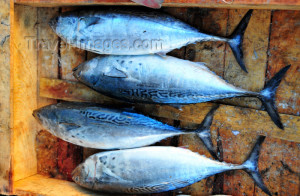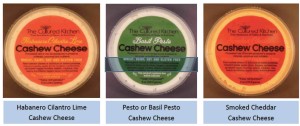Community dinners can be great fundraisers but are often held at temporary sites and staffed by volunteers unfamiliar with safe food handling practices for large meals.
Or folks who make pulled pork at home, potentially contaminate it, transport it and can’t recollect how the food was reheated at the serving site.
CDC reports the latter situation in this week’s MMWR:
Outbreak of Salmonellosis Associated with Consumption of Pulled Pork at a Church Festival — Hamilton County, Ohio, 2010
On June 18, 2010, Hamilton County Public Health (HCPH), a local health department in Ohio, began receiving reports of gastrointestinal illness from persons who attended a church festival held during June 11–13 in a suburban community of Hamilton County. HCPH investigated and confirmed the existence of a foodborne outbreak associated with consumption of pulled pork prepared in a private home and sold at the church festival. Sixty-four attendees with gastroenteritis were identified. Salmonella enterica serotype Typhimurium (Salmonella Typhimurium) was found in stool specimens from three patients; no other pathogen was found. Because the outbreak was identified after the church festival had concluded, the environmental investigation was limited to interviews of food handlers. The primary public health interventions consisted of 1) active surveillance for additional cases of salmonellosis associated with the festival, 2) consultation with the festival organizers and food vendors to ensure the pork product was not resold or consumed elsewhere, 3) education of the festival organizers and food vendors about relevant public health regulations and food safety practices, 4) traceback of the implicated product to the retailer in Indiana, and 5) notification of the Indiana State Department of Health. The results of the investigation call attention to the public health implications of unregulated food service at events such as church festivals, which generally are exempt from public health inspection and licensure in Ohio. Food sold in such environments might place populations at risk for foodborne illness.
And the telling paragraph:
To assess environmental factors that might have contributed to the outbreak, the pulled pork vendor was interviewed and revealed that the pork was prepared in a private home. The vendor reported that the pulled pork was cooked to an internal temperature of approximately 180°F (82°C), subsequently cooled in pans in a residential-style (i.e., noncommercial) refrigerator, and then reheated at the church festival. The refrigerator internal temperature was said to have been below 41°F (5°C) during cooling, but the vendors were unable to report the time it took for the cooked product to reach a uniform temperature of ≤41°F (≤5°C). The time and temperature parameters of the reheating process also were unknown. After the interviews with the implicated food vendor and discussions with the festival coordinator, it was determined that this vendor’s operation would have been subject to the food service licensing requirements specified by the Ohio Revised Code. Although the vendor was operating at the church festival, the management of the vendor’s proceeds precluded an exemption under Ohio Revised Code. The vendor and festival coordinator were informed of the relevant public health regulations and the associated food safety practices. HCPH used this experience to initiate the development of new outreach and education materials designed specifically to address food safety regulations and concerns related to events and venues, such as church festivals, that are generally exempt from food service licensure and inspection in the state of Ohio.
Community dinners, the fellowship-fostering events often organized by churches are a nostalgic link to the past when a congregation would financially support members’ activities through chili, pancakes or barbecue. They also, according to CDC’s Rob Tauxe, have created some of the easily traced foodborne illness outbreaks.







